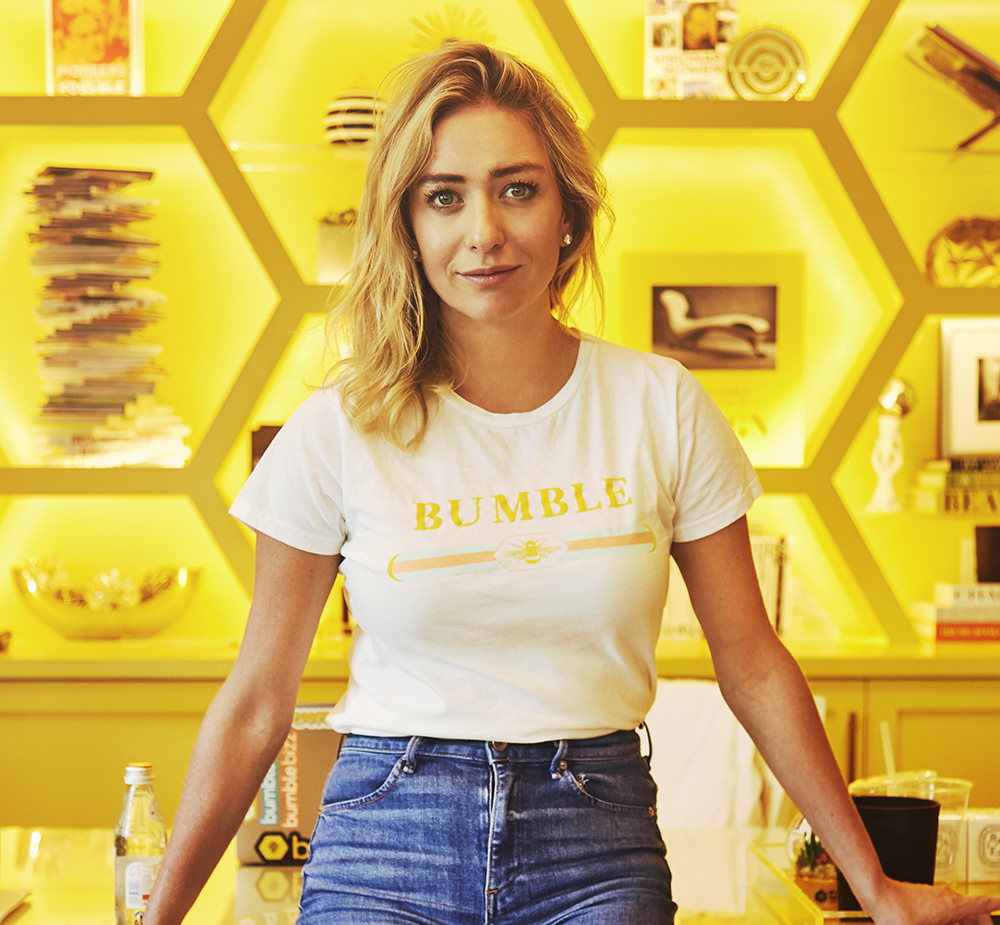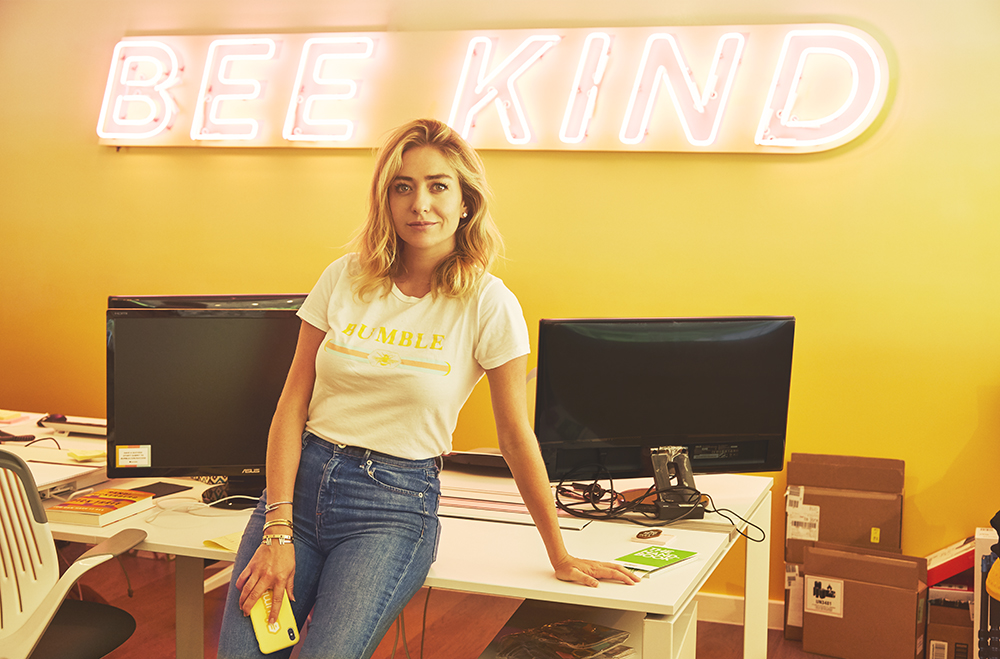Photos by Francisco Garcia
Whitney Wolfe Herd didn’t just create a dating app. She created Bumble, a direct response meant to tackle the misogyny and toxicity that women face in their everyday lives. With a growing database of over 40 million users across 160 countries, she’s got a growing army of men and women by her side to help bring down a giant.
Written by Rebecca Tucker
In 2019, online dating will celebrate its 24th birthday. That means that the medium, which made its debut with Match.com in 1995, may have at this point resulted in matches whose offspring are now old enough to themselves be looking for significant others online. What once was a taboo subject in its early stages now has become everyday conversation fodder that elicits barely a blink of surprise. After all, who among us doesn’t have a set of coupled-off friends (or two, or three, or more) who have met online — if not a married one?
It makes sense that digital romance has become the matchmaking mainstay that it is: it’s just so easy and so seamlessly integrated into the rest of our increasingly online lives now that it has largely transitioned from web browser-based services to mobile apps. Over the course of, say, a 15-minute coffee break, a dating app user can match with a dozen people, start a conversation with just as many, and by the end of the day have set up dates with at least one or two (depending on his or her aptitude for small-talk and charm, of course). What used to take a night at a bar, or a few weeks via text, or months of pining and wooing can now take as little as a half-afternoon’s worth of text messages (and a little bit of trust).
But while online dating has become the method-du-jour for successful pairings (and, indeed, fulfilling hookups — if that’s what you’re looking for), it generally has failed to distinguish itself from reality in one significant way: it’s still pretty toxic. As many people of various gender identities who use dating apps can tell you, despite (or maybe because of) the medium’s laudable ease-of-use, there is a significant ease-of-creep — or, worse, harassment. And this largely comes from men, male-identifying individuals, or simply people who lean into typically heteronormative, hegemonically “male” behaviours: forwardness, pushiness, sexual aggression, sexually threatening language, and manipulation. What was once a liberating, hassle-free way to meet people has devolved into a cesspool of sexism, ableism, and misogyny.
Enter: Bumble.
“We have one mission, and that is to end misogyny” says Bumble founder and CEO, Whitney Wolfe Herde. “This company started as a response to a very real experience. Dozens of other people on our team have been directly or indirectly affected by emotional abuse in their life and that has generally stemmed [from] toxic masculinity. We wake up every day trying to instill all those values together collectively to solve one problem.”
Bumble is, of course, another dating app — and one whose genesis stems not only from Wolfe Herde’s aversion to the toxicity she identified as being inherent to other, similar apps but from her direct experience within that machine. She’s actually a former co-founder of Tinder and founded Bumble in 2014. Bumble fits handily into the framework of dating apps at large in that its core functionality doesn’t stray too far from the norm — if you know how to use Tinder, in other words, you’ll intuitively know how to use Bumble: swipe right if you’re interested, left if you’re not. But there’s one key difference that has allowed Wolfe Herd to tout Bumble as a strictly feminist dating app: it puts control in the hands of women, empowering them to start conversations only when they want to, and to otherwise forego interactions with their matches altogether.
“I think what we’ve tried to do with Bumble is really make it a place where people can be themselves and seek whatever they’re looking for. It’s not a place that pigeonholes you into feeling like this is only for one night stands, or this is only for this, or this is only for that,” Wolfe Herd says as she sits in her office at Bumble HQ in Austin, wearing a white tee and blue jeans. “So, we’ve tried to create this open opportunity where demands are almost not there, because we don’t engineer them to be there.”
Wolfe Herd, who holds an international studies degree from Southern Methodist University (SMU), understands that demands and desires exist outside of the dating sphere as well: case in point, she had hoped to pursue marketing at school but failed a test that would have allowed her admission into the program at SMU and assumed that that one failure meant she’d never succeed in any capability as a marketer, ever. But look at her now: She is proof positive that the cookie-cutter trajectories that dominate typical career paths— just like the ones that have been applied to romantic relationships — are as ineffective now as, perhaps, they ever were.
It is in this spirit that Wolfe Herd expanded Bumble, launching Bumble BFF (in 2016) and Bizz (a year later) as platforms to further reinvent the ways women are able to access empowerment and success. The core tenet — the eradication of misogyny — is still there but has expanded beyond the world of romantic relationships and into those of business and friendship. Bumble is essentially allowing women to control the narrative and completely circumvent a world created by and for men.
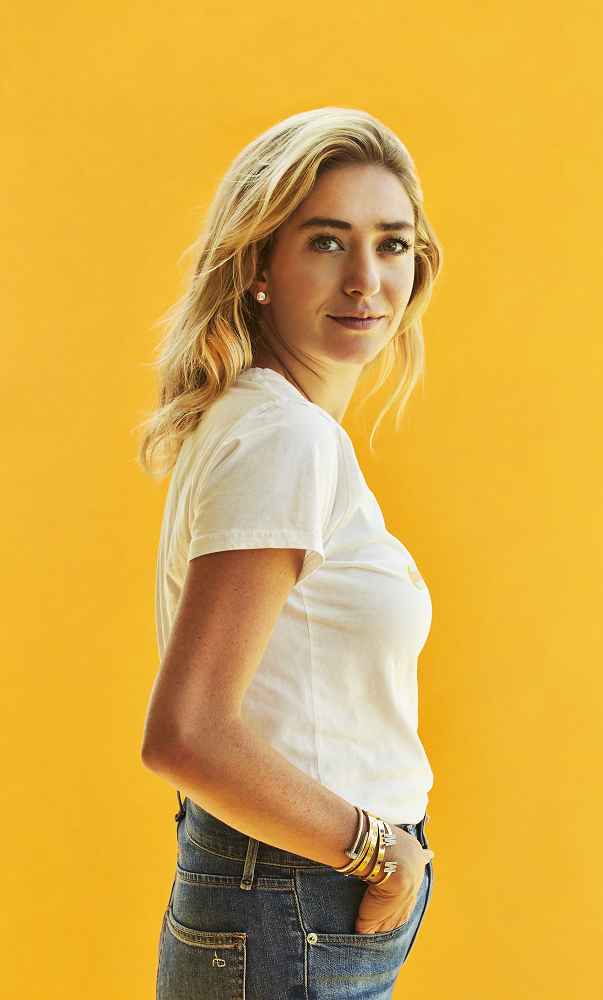

“If you’re going to end misogyny, you need to get rid of any of the toxic relationships that are bringing you down in life” Wolfe Herd says, emphasizing that misogyny is not exclusive to men. It’s important for women to redefine the way they treat one another. “Women tear one another down in fear of having that one seat in the room stolen away from them. Or, women talk poorly about other women to protect their own stance in the eyes of men. So, by encouraging women to … engage with one another with kindness, accountability, empowerment, equality, and all of these values that count towards a good connection, you’re actually taking a very powerful step in the right direction and away from misogyny. Building those connections are imperative for women to feel confident.”
I know this from lived experience: I was recently scrolling through the social-media feed of a woman who’s dating one of my ex-partners, masochist as I am, and a close female friend of mine leaned over my shoulder and began making disparaging remarks about the woman’s appearance. When I asked why, my friend responded that she thought it might make me feel better about myself. After all, to paraphrase the poet Chimamanda Ngozi Adichie, women are in competition with one another for the appreciation of men, not for success or accomplishments. So of course I should find it uplifting that my appearance, the key components of my attractiveness towards men, should surpass those of another woman?
(I didn’t.)
Wolfe Herd is sympathetic. “I’m so perplexed that I was taught that misogyny was normal for so many years,” she says — the impulse that women have to cut each other down, the idea that we are in competition for men and not for jobs, the fact that we are sometimes more comfortable seeing each other as enemies rather than mutually supportive friends, are all facets of internalized misogyny. “It’s like I had an awakening within me at a certain age where I was like, there’s something not right about this.”
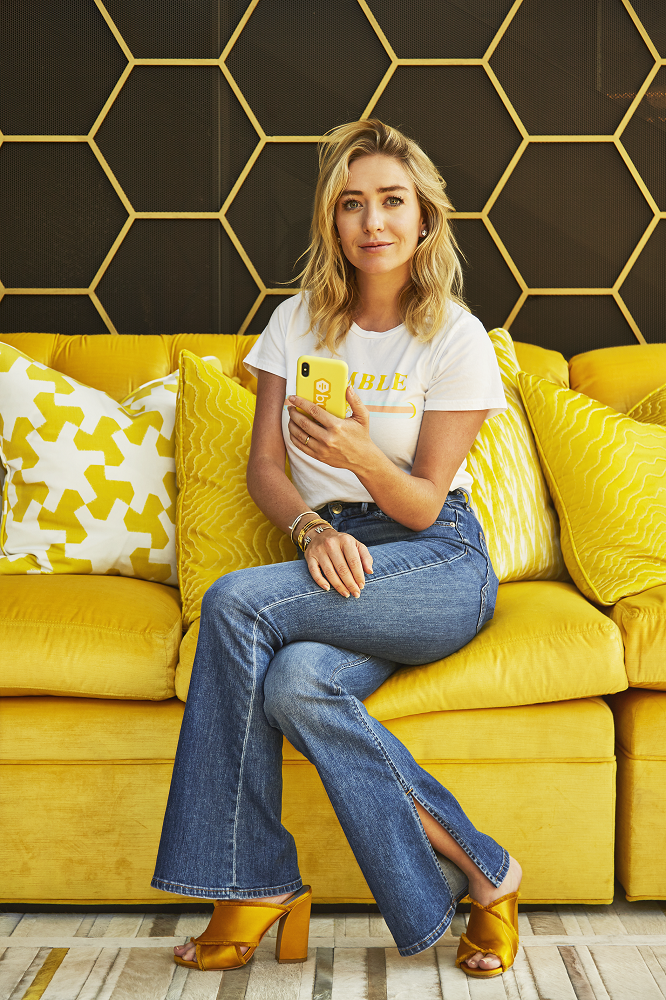

With Bumble, then, it might not be far enough to say that Wolfe Herd is simply attempting to eradicate misogyny — she is turning the patriarchal systems that enforce misogyny directly on their heads by actually using some of the tools that have served to uphold the patriarchy. By empowering women to seek out opportunities for professional collaboration and entrepreneurial support, for instance, Bumble eliminates men from a system that has long alienated and excluded women. Encouraging women to seek out friendships with one another using the infrastructure of a dating app, as Bumble does, enforces the notion that single women are not incomplete without a man — rather, women can choose the types of relationships within which they find fulfilment and completion.
But it’s a double-edged sword: She acknowledges that there is a pressure inherent to having the onus on you to make the first move; a pressure some men have felt, perhaps, in their own lives when navigating a misogynist system that actually doesn’t work for them, either. Wolfe Herd notes that, in dismantling the patriarchy — in eradicating misogyny — men are also key players; here, we can’t depend on women to do the work alone of reversing systems that have held them in positions of oppressions since time immemorial. “I really believe that if men don’t start combating the bad behaviour, we’re just going to be divided further and further apart,” she says. “Women are going to … start looking like we are driving this divide, and in reality we just want to be seen as equals. We don’t want to be better or worse, we just want to be equal.”
This message of equality applies to Bumble’s inner workings, too. Wolfe Herd says that, on an executive level, Bumble’s leadership team “[sees] ourselves at the exact same level of every potential user. We want people to think about relationships differently. We want people to think about power dynamics and gender dynamics and all these traditional archaic dynamics differently, and we want to challenge it however we can.” For the company, that means actively seeking out women and people of diverse ethnic and gender-identifying backgrounds for positions of power. “You can’t just hope for it, you have to do it and you have to really enforce it,” she says. “You can find an intelligent, incredible leader in a woman as easy as you can [find one] in a man, and that’s not to say you should just choose a woman for the sake of being a woman, but if you just go that extra mile… I know a lot of tech companies that said, ‘Well, there’s no female engineers,’ or ‘There’s none of these,’ or ‘There’s none of those.’ And I say that’s not really true, you’re just looking in the wrong places. You can have the best intentions but if you don’t prioritize [them], they just [stay as] intentions.”
Bumble also has internal systems in place to enable its staff on how to find inner strength and confidence within workplace dynamics where those inner aptitudes have traditionally been repressed and discouraged. “To be totally candid with you, over the years I’ve had very few women ask me for promotions or raises. We don’t have that many men in our business, but [have] had several men be more verbal and more vocal, and more confident in their ask,” she says. “At that point we just had to put in place this annual review where every single person, regardless of gender, gets the exact same opportunity to showcase: did they hit their goals, did they surpass their goals? Okay, if certain things happen, then people are eligible for salary increases and so on and so forth because otherwise, I don’t know if everybody would have started coming forward. And that’s not to say, ‘Oh, because you’re a woman, you’re always gonna get a raise if you ask for one,’ but the point is you should always advocate for yourself and even if it’s a no that you’re met with, you actually make huge strides because you advocated for yourself.”
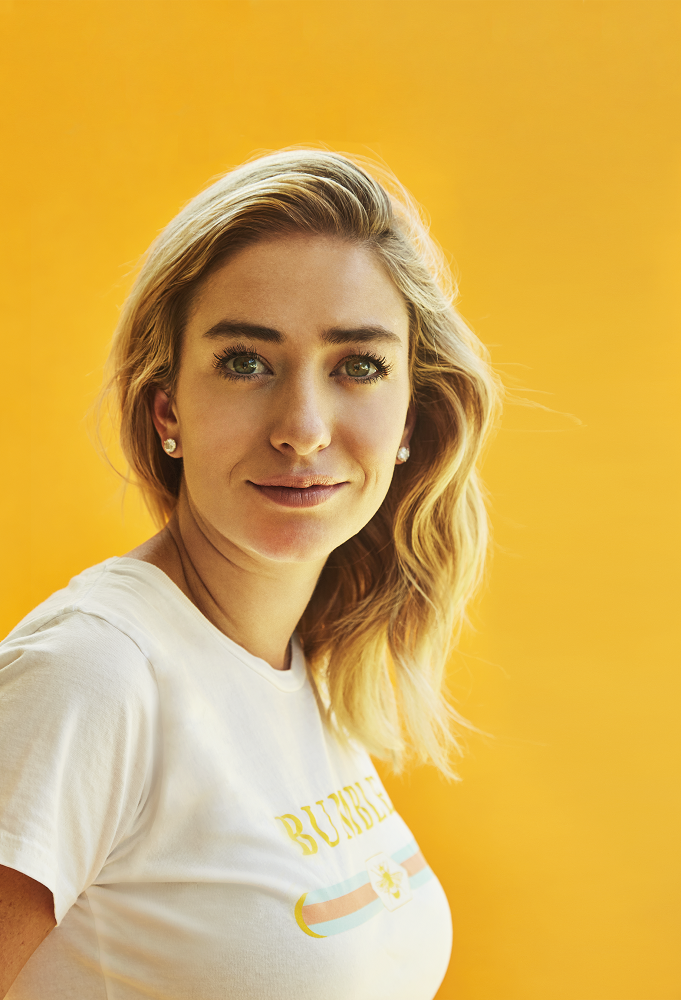

Recently, Wolfe Herd and Bumble put their money where their mouths are in that regard with the Bumble Fund, a venture capital fund that will invest exclusively in businesses founded and fronted by women. The fund already has give commitments and is significant not just for its unconventional origins — there aren’t many VCs out there who can trace their lineages to a dating app — as its disruptive nature: Bumble Fund will give opportunities to female entrepreneurs that may have otherwise been completely ignored. It’s changing the game by beating it at its own rules.
Of course, at the end of the day, Bumble is still just a dating app — albeit a dating app with 40 million registered users, making it, in Wolfe Herd’s words, “bigger than several countries.” So it’s a dating app with a mandate, a mission, a series of core ethics and values that can change the way we view not only dating apps, but relationships at large — not to mention business, friendship, commerce, and basic human interactions. Letting women go first might seem like a simple enough idea, but if you look at the inverse, the implications are significant: the power is removed from the hands of men.
“I think personal growth is one of the main reasons why we’re all here,” Wolfe Herd says. “I always think about that Maya Angelou quote that was, ‘Do the best you can until you know better. Then when you know better, do better.’ And I think that it just comes down to social responsibility to try and make the world a better place. If you have a platform, it’s a huge fault to not use it to better the world.”


